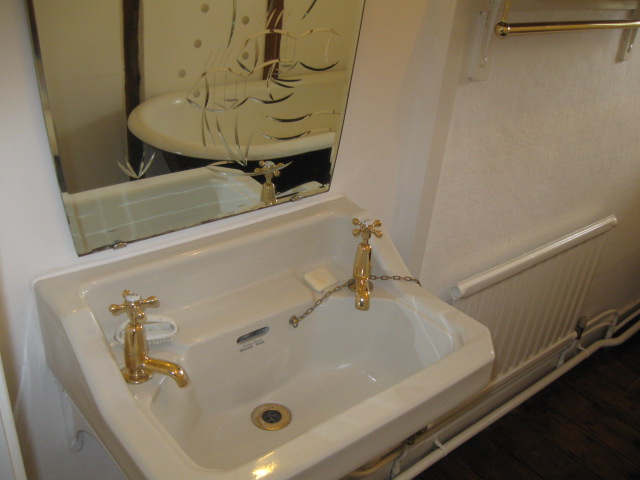May 4th, 2013 – The steel wheels are spinning along the tracks noisily, the old rocks grow out of the grass around them, as the sheep chew hungrily at the new roots of spring. I have just read an article on R.S.Thomas, and am looking out of the train window at old men sawing on garden benches in the sun, and maybe, just perhaps, I am falling for my home yet again.
The grief of leaving West Wales just when, finally, it looks and feels comfortable and beautiful, and after an impossibly long winter, has almost stopped me from getting on the train back to the American Deep South. At last, we are poised on the edge of the American Beatnik project again. The Snowbird route South, into Hemingway country and beyond, possibly, into the worlds of Castro and Guevara. Three years in the boatyard; two films, and a war-zone later, with books illustrated, and money in the bank, we reckon we can survive for about four months – longer if we find some sustaining occupation. The ancient spanish port of Saint Augustine will be our first destination after leaving the quarter-mile-long condemned piers of Green Cove Springs, with all of its faded naval war-glory, its resident black widow spiders, alligators, otters and manatees. But first, we shall head into the dusty abyss of the workyard, propellers, water and refrigeration systems, one more coat of paint on the decks, and yacht varnish on teak.
I have been here before – 100% humidity, 100 degrees in the shade, local work grinding to a halt, the lone Briton grinding away on his boat in the mid-day sun. But we will soon be on the water, where it will cool, and should be tolerable. And then perhaps we will be living the dream of floating around on our boat in the sun.
July 31st 2013 – I look at our ridiculous choices, hardships, and the total lack of financial return I have to answer to when people ask me questions about fixing up this old, beautifully-built, strong, but unquantifiable ferro-cement boat, and I ask myself the question they are really asking: Why?
Then I read a passage at the end of my current reading-book; a favourite of my father’s, Admiral Evans’ account of the incredible disasters and excruciating near-salvations met by Scott’s last polar expedition.
He writes of the ‘infinite sadness’ with which they cleared up the mess in the antarctic in 1913. As they pulled out of the ice for the last time, leaving the pack ice, he describes it thus:
‘The evening before we finally broke through into open water was beautifully still, and a low cloud settled down in the form of a thick fog. – it was a change from the fine, clear weather – frost rime settled everywhere, and for a time we had to stop.
There was a weird stillness over all, and whenever the ship was moved amongst the ice-floes a curious hiss was heard; this sound is well-known to all ice navigators: it is the sear of the floe against the greenheart sheathing which protects the little ship, and it is, to the ice-master, what the strange smell of the China Seas is to the far Eastern navigator, what the Mediterranean “cheesy odours” and the Eucalyptus scents of Australia are to the P. and O. officers, and what the pungent peat smoke of Ireland is to the North Atlantic seaman.
I suppose the memory of the pack ice hissing around a wooden ship is one of the little voices that call – and they sometimes call as the memory of “a tall ship and a star to steer her by” calls John Masefield’s seamen “down to the seas again”.
I sometimes feel a mute fool at race meetings, society dinner parties, and dances; the lure of the little voices I know then at its strongest.
It is felt by the Polar explorer in peace times and in the hey-day of prosperity, and it is surely that which called Scott away, when he had everything that man wants, and made him write, as he lay nobly dyingout there in the snowy wild:
‘How much better it has been than lounging in too great comfort at home’
Reading this gave me the final resolve to come – no matter what – to the seas with my boat, as good as I could make it, and trust in the ‘voice’ enough to push through squalls and storms, and here I sit, writing ‘in too great comfort’ in the cockpit of the good ship Sandpiper, in Darsena, Northern Cuba. It is to this I owe the fact that WE MADE IT!
